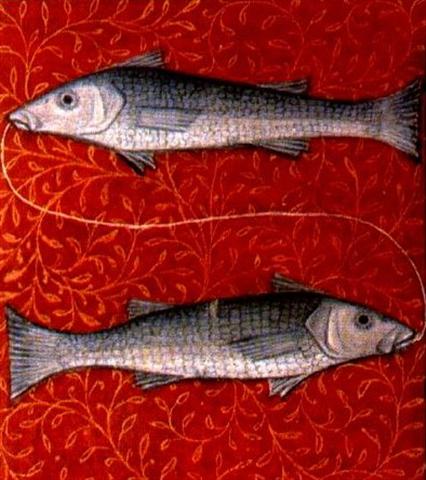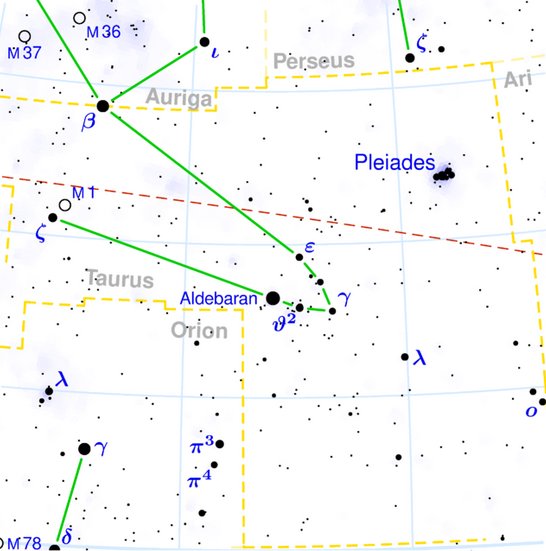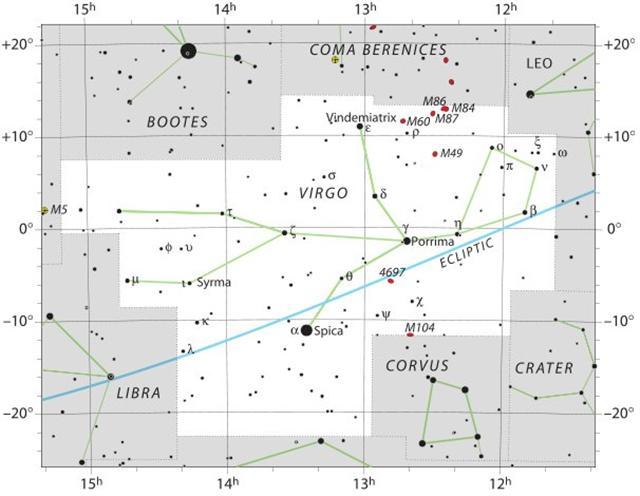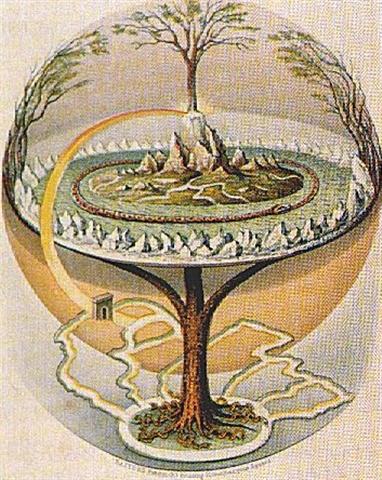16-5. Maybe November 15 should be
counted not as day 319 from the Gregorian 0h but instead counted
as day 364 - 45, because south of the equator on Easter Island
they could have kept their ancient traditions alive.
 |
 |
|
Eb7-1
(→ 237 - 16) |
Eb7-2
(326 + 222 = 2 * 274) |
|
te tagata puo pouo |
kua hua te hipu |
|
Hipu. Calabash,
shell, cup, jug, goblet, pot, plate,
vase, bowl, any such receptacle; hipu
hiva, melon, bottle; hipu
takatore, vessel; hipu unuvai,
drinking glass. P Mgv.: ipu,
calabash, gourd for carrying liquids.
Mq.: ipu, all sorts of small
vases, shell, bowl, receptacle, coconut
shell. Ta.: ipu, calabash, cup,
receptacle. Churchill. |
|
Nov
13 (317, *237) |
14
(364 - 46 = 318) |
|
Al Thurayya-27 (Many Little Ones)
/
Krittikā-3 (Nurses of Kārttikeya)
/
TAU-ONO (Six
Stones)
ATIKS =
ο
Persei,
RANA (Frog) =
δ
Eridani
(55.1),
CELAENO (16 Tauri), ELECTRA (17),
TAYGETA (19),
ν
Persei (55.3), MAIA (20), ASTEROPE (21),
MEROPE (23)
(55.6) |
Hairy Head-18 (Cockerel)
/
Temennu-3
(Foundation Stone)
ALCYONE
(56.1),
PLEIONE (28 Tauri), ATLAS (27 Tauri)
(56.3) |
The Full Moon should ideally be at the right
ascension line of Alcyone (*56), which was 11
days after Algol (*45), and 318 (November 14)
+ 45 = 363 (December 29). Anciently there were only
29 days in December.
|
 |
*1 |
 |
|
Gb8-2 (229 + 214 = 443 = 15 * 29½ + ½) |
Eb6-19 (326 +
203 = 529) |
|
Oct 25
(*218) |
Oct 26 (299 →
529 - 230) |
|
FOMALHAUT
(Mouth of the
Fish, 1.17, 29° 53′ S) |
FUM-AL-SAMAKAH
(Mouth of
the Fish, 4.48, 03° 49′ N) |
|
→
DEC 29 |
→
DEC 30 (364 → 299 + 65) |
 |
Perhaps this was one of the reasons for Metoro to read
withershins. From the time when the Sun went down at the
horizon in the west he had to travel withershins below the
earth in order to reemerge fresh as new again at the horizon
in the east in the next day. This perspective explains why
the nighttime sky normally is mapped with the right ascension
hours running from right towards the left:

 |
 |
 |
 |
 |
|
Eb6-23 |
Eb6-24 (2 * 104) |
Eb6-25 |
Eb6-26 (210) |
Eb6-27 |
|
kua hua te maitaki |
e gagana |
e vaka kagore te kai o roto |
hakarava te tagata |
rima ma te maitaki |
|
Hua. 1. Testicle. 2.
Figuratively: son, hua tahi, only son; fruits
of the earth; to grow well (of fruits). 3. To cause
a fight, a quarrel. Hua-ai, generation, as
lineage of direct descendents;
contemporaries. Huahua, coccyx of bird, 'parson's nose':
huahua moa, huahua uha. Huataru, a
creeper (Chenopodium ambiguum).
Vanaga. 1. The same; ki hua, again, to
continue, to strain, to struggle, to move, to
repeat, over and above. Mq.: hua, the same,
to return, to recommence. 2. To bloom, to sprout;
flower, fruit (huaa); huaa tae oko,
huaa vahio, young fruit; hua atahi, only
son; huahaga, fruit; mei te huahaga o
tokoe kopu, the fruit of thy body; tikea
huahaga, deceptive appearance. P Pau.: ua,
to be born; huahaga, lineage. Mgv.: hua,
to produce (said of trees, grain, etc.), blooming
time of flowers, abundance of fruit. Mq.: hua,
to produce, to bear fruit. Ta.: ua, to
sprout. Huahua. 1. Tailless fowl. 2. Vein,
tendon, line. 3. Mgv.: huahua, pimples
covering the face. Ta.: huahua, id. Mq.:
hua, tubercules. Sa.: fuafua, abscess on
hand or feet. Ma.: huahua, small pimples.
Pau.: Hua-gakau, rupture. Ta.: įau,
entrails. Sa.: ga'au, id. Ma.: ngakau,
id. Churchill. 1. Fruit. 2. Egg. 3. Tā
hua = 'genealogical writing' or 'same writing'.
Fischer.
... The practice
of turning down the fingers, contrary to our
practice, deserves notice, as perhaps explaining why
sometimes savages are reported to be unable to count
above four. The European holds up one finger, which
he counts, the native counts those that are down and
says 'four'. Two fingers held up, the native
counting those that are down, calls 'three'; and so
on until the white man, holding up five fingers,
gives the native none turned down to count. The
native is nonplussed, and the enquirer reports that
savages can not count above four ...
Maybe the 'zero'
hanging down in Eb6-27 meant 'empty hand'. Give me
five!
|
He Maro 1 |
*1 |
He Maro 3 |
*1 |
He Maro 5 |
 |
 |
 |
|
ANDROMEDA GALAXY (M31) |
ξ Phoenicis (9.0) |
π¹ Orionis (73.0)
|
HAEDUS II |
|
March 28 |
March 30 |
MARCH 30 |
Eb5-28
(354 / 2) |
|
te kiore - te henua |
nuku maro etoru |
te henua - te kiore |
|
*5
...
Nut,
whom the Greeks sometimes identified with
Rhea, was goddess of the sky, but it was
debatable if in historical times she was the
object of a genuine cult. She was Geb's twin
sister and, it was said, married him
secretly and against the will of Ra.
Angered, Ra had the couple brutally
separated by Shu and afterwards decreed that
Nut could not bear a child in any given
month of any year. Thoth, Plutarch tells us,
happily had pity on her. Playing draughts
with the Moon, he won in the course of
several games a seventy-second part of the
Moon's light with which he composed five new
days. As these
five intercalated days did not belong to the
official Egyptian calendar of three hundred
and sixty days, Nut was thus able to give
birth successively to five children: Osiris,
Haroeris (Horus), Set, Isis and Nepthys ...
.jpg) |
|
|
Oct 30 |
31 (304 = 364 -
60) |
Nov 1 |
2 |
3 |
|
Bharani-2
(Yoni)
/
Stomach-17 (Pheasant)
π
Arietis (41.2),
MIRAM (Next to the Pleiades) =
η
Persei
(41.3),
BHARANI = 41 Arietis (41.4),
τ²
Eridani,
σ
Arietis (41.7) |
TA LING (Great Mound) =
τ Persei (42.4)
*1.0 = *42.4 - *41.4 |
ρ Arietis (43.0),
GORGONEA SECUNDA =
π
Persei
(43.5),
ACAMAR (End of the River) =
θ
Eridani
(43.6),
ε
Arietis (43.7),
λ
Ceti (43.9)
DENEBOLA (β Leonis)
|
MENKAR (The Nose) =
α Ceti
(44.7) |
3h (45.7)
GORGONEA TERTIA =
ρ
Persei
(45.1),
ALGOL (The
Demon) = β Persei
(45.9) |
.jpg) |
At any rate we have to continue with the beginning of
line Eb7. Luckily the glyphs are here coming in pairs. 5 * 2
= 10:
 |
 |
|
Eb7-3 (223) |
Eb7-4 |
|
ka tu te rakau |
te vai okahega |
|
Nov 15 |
16 (320) |
|
MENKHIB (Next to the Pleiades) =
ζ
Persei(57.6)
PORRIMA (γ Virginis) |
ZAURAK (Boat) = γ Eridani
(58.9) |
 |
 |
 |
|
Eb7-5 (225) |
Eb7-6 |
|
te rakau |
te manu |
|
Nov 17 |
18 |
|
λ Tauri (59.3), ν Tauri (59.9) |
4h (60.9)
JĪSHUĬ = λ Persei (60.7)
COR CAROLI (α Canum Ven.) |
 |
 |
|
Eb7-7 (227) |
Eb7-8 |
|
tupu te rakau |
ko raua ka tutu |
|
Nov
19 |
20 (324) |
|
υ
Persei (61.2) |
BEID (Egg) =
ο¹
Eridani
(62.2),
μ
Persei (62.8)
VINDEMIATRIX (ε Virginis) |
 |
 |
|
Eb7-9 |
Eb7-10 (230) |
|
ka tupu te rakau |
ka tu te niu |
|
Nov 21 |
22 (326) |
|
Al
Dabarān-2 (The Follower)
HYADUM I =
γ
Tauri (63.4)
*22.0 = *63.4 - *41.4 |
HYADUM II = δ¹ Tauri
(64.2) |
 |
 |
|
Eb7-11 |
Eb7-12 (232) |
|
kua hua |
atua mata viri |
|
Nov 23 |
24 (328) |
|
Net-19
(Crow)
AIN (Eye) =
ε
Tauri,
θ¹
Tauri,
θ²
Tauri (65.7) |
No star listed (66) |
 |
 |
|
Eb7-13 |
Eb7-14 (326 +
234 = 560) |
|
Erua oona mea ki te puoko |
ka tupu te rakau |
|
Nov 25 (329, *249 = *67 + *182) |
26 |
|
No star listed (67) |
Rohini-4 (The Red One)
/
Pidnu-sha-Shame-4 (Furrow of Heaven)
/
ANA-MURI-2 (Rear pillar - at the foot of which
was the place for tattooing)
ALDEBARAN = α Tauri
(68.2),
THEEMIN = υ² Eridani
(68.5) |
|
Rakau, raau, medicine, remedy, drug.
Ra'a'u, scratch on the skin. Rakau, a
plant. Rākau, goods, property. Vanaga. 1.
Wood; rakau ta, cudgel, stick. P Pau.:
rakau, tree, to dress a wound. Mgv.:
rakau, wood, timber, a tree; medicine, a
remedy; an object. Mq.: įkau, wood, tree.
Ta.: raįu, id. 2. Medicine, remedy,
potion, ointment, furniture, any precious
object, resources, baggage, riches, heritage,
dowry, merchandise, treasure, wealth; rakau
hakaneinei, purgative; rakau nui,
rich, opulent; rakau kore, poor, beggar,
indigent, miserable, an inferior;
hakakamikami ki te rakau, to impoverish;
rakau o te miro, ballast. Mq.: akau,
anything in general. The medicine sense is
particularized in Tonga, Nukuoro, Hawaii,
Tahiti, Mangareva, Paumotu. In no other speech
does wood stand so fully for wealth of
possessions, but it will be recalled that
Rapanui is destitute of timber and depends
wholly upon driftwood. Churchill. |
... As the hull of the canoe reached
almost to the roof, the builders could work no longer within
the shed, and so they broke it away. Then the boards of the
deck were set upon the beams and fixed in place with spikes
and sennit, and the ama or outrigger of tamanu
wood, which had been well steeped in water to preserve it
from borers, was polished with limestone and firmly lashed
with sennit on to the left side of the canoe, the upper
attachment of wood forming across each end of the canoe a
beam, called 'iato, and lashed on to the right side
in the same manner as on the left side ...
... At Opoa, at one of the
last great gatherings of the Hau-pahu-nui,
for idolatrous worship, before the arrival of
European ships, a strange thing happened during our
[the two priests of Porapora, Auna-iti
and Vai-au] solemn festivity. Just at the
close of the pa'i-atua ceremony, there came a
whirlwind which plucked off the head of a tall
spreading tamanu tree, named
Paruru-mata'i-i-'a'ana
(Screen-from-wind-of-aggravating-crime), leaving the
bare trunk standing. This was very remarkable, as
tamanu wood is very hard and close-grained. Awe
struck the hearts of all present. The
representatives of each people looked at those of
the other in silence for some time, until at last a
priest of Opoa named Vaitą
(Smitten-water) exclaimed, - E homa, eaha ta
'outou e feruri nei? (Friends, upon what are you
meditating?) - Te feruri nei i te tapa'o o teie
ra'au i motu nei; a'ita te ra'au nei i motu mai te
po au'iu'i mai. (We are wondering what the
breaking of this tree may be ominous of; such a
thing has not happened to our trees from the
remotest age), the people replied. Then Vaitą,
feeling inspired, proceeded to tell the meaning of
this strange event
I see before me the meaning of
this strange event! There are coming the glorious
children of the Trunk (God), who will see these
trees here, in Taputapuatea. In person, they
differ from us, yet they are the same as we, from
the Trunk, and they will possess this land. There
will be an end to our present customs, and the
sacred birds of sea and land will come to mourn over
what this tree that is severed teaches. This
unexpected speech amazed the people and sages, and
we enquired where such people were to be found.
Te haere mai nei na ni'a i te ho'e pahi ama 'ore.
(They are coming on a ship without an outrigger),
was Vaitąs reply. Then in order to illustrate
the subject, Vaitą, seeing a large umete
(wooden trough) at hand, asked the king to send some
men with it and place it balanced with stones in the
sea, which was quickly done, and there the umete
sat upon the waves with no signs of upsetting amid
the applauding shouts of the people ...

|







.jpg)
.jpg)


